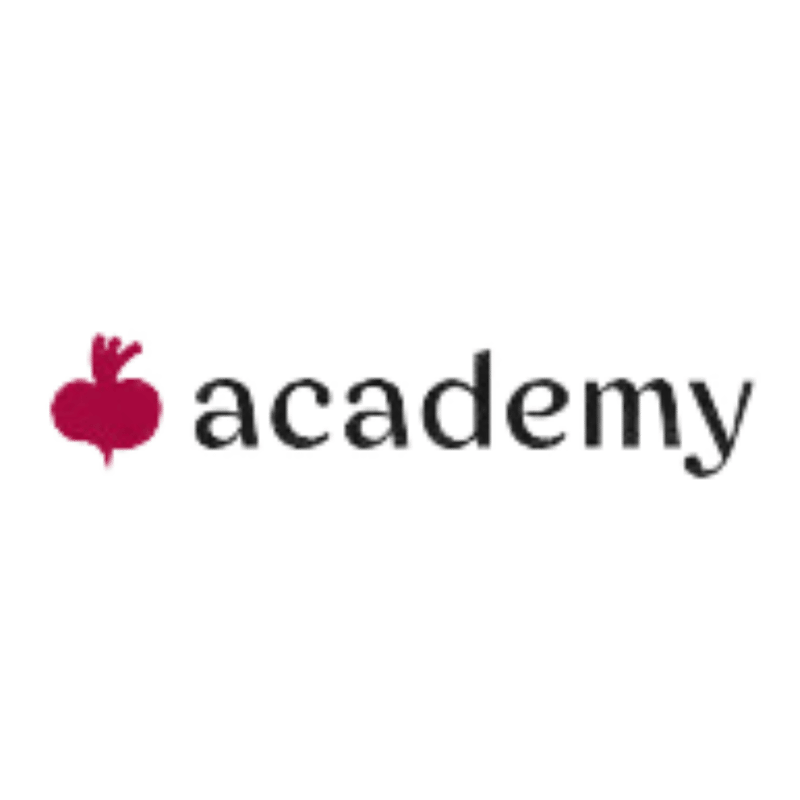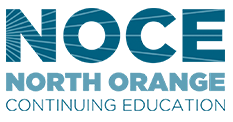
Financial aid (may be available)

Financial aid (may be available)

Financial aid (may be available)

No cost info
No cost info

$220 to start
$440 total

No cost info
$3,550 total
Financial aid (may be available)
OPTI Medical Systems supports the Online Quality Assurance Program (QAP) to add value to your OPTI CCA-TS2 analyzer. Online QAP facilitates the evaluation of quality control (QC) data with that of your peers for trends and shifts. Do not miss out on these valuable services that OPTI Medical provides OPTI analyzer users at no additional charge.
No cost info
The Graduate Certificate in Quality Assurance Compliance provides an in-depth knowledge of the global regulatory and compliance requirements for the development, marketing approval, and clinical utilization of biomedical products in today’s dynamic global healthcare environment.
No cost info
This program is designed for the chemist, bio-chemist or biologist in the pharmaceutical and biologic industry new to quality assurance and control, and is beneficial to senior year undergraduates and graduate students (using concurrent enrollment) interested in a career in QA/QC.
The program focuses on the quality requirements for the production and control of biologics and drugs, and the differences between quality control and quality assurance and their interaction with manufacturing. It highlights the importance of implementing and maintaining a quality system during the early stages of drug development, including the plethora of documents and controls necessary to make such a system effective. Guidelines and regulations from the FDA and the California State food and drug branch regulate the production of drug products. Quality Assurance (QA) monitors the manufacturer's compliance to these guidelines and regulations.
Instruction covers how to write, issue and control SOPs; manufacturing directions; and how to review and archive a batch history and other relevant documents. Emphasis is placed on conducting inspections and vendor audits for compliance to cGMPs to include contract manufacturers, bulk pharmaceutical chemical manufacturers and contract test laboratories. The program covers cGLPs and their applications to audits of facilities that provide toxicological services. Details on compiling, writing and archiving audit reports is provided.
No cost info
Quality assurance training helps applicants for understanding the basic concepts of information technology and software testing which help them excel as Quality Assurance (QA) specialists. The quality assurance course also covers physical products in determining defects in manufactured products and preventing them, pre-production, SDLC-Software Development Life Cycle, Production Environment vs Sandbox Environment, Mantis Bug Tracker, and many more. During the QA online training, you will learn how to decode the application of dynamic and static techniques, conduct walk-thoughts and audits, create a quality analysis, perform boundary value analysis, and test plan hands-on through this Quality assurance certification training.
No cost info
Mount St. Mary’s University is home to Maryland’s only certificate in quality assurance and regulatory science (QA/RS). The fully online program prepares you to lead your company through the efficient delivery of high-quality products within a competitive market.
No cost info
Are you interested in a career in Quality Assurance? Do you want to ensure that products meet the highest standards of quality? If you're in Miami, you're in luck! There are several quality assurance classes available near you that can help you gain the skills and knowledge you need to succeed in this field. In this blog post, we will explore what quality assurance is, the training requirements, what to look for in a class, what to expect from the day-to-day class, the certification process, how to find related jobs, and other classes you can take after becoming a Quality Assurance professional.

Quality Assurance (QA) is a vital process in various industries, including manufacturing, healthcare, software development, and many more. It involves ensuring that products or services meet specified requirements and adhere to quality standards. A career in QA requires attention to detail, strong analytical skills, and the ability to identify and address potential issues or defects.
Quality Assurance is a systematic process that ensures products, services, or processes meet predetermined quality criteria. It involves monitoring, evaluating, and improving the quality of products or services throughout the entire production or development process. QA professionals play a crucial role in maintaining high-quality standards and preventing defects or errors.
To become a Quality Assurance professional, you will need to acquire the necessary skills and knowledge through training. While there are no specific educational requirements for entry-level positions in QA, having a high school diploma or equivalent is typically preferred by employers. However, to advance your career and increase your job prospects, obtaining a certification or completing vocational training in Quality Assurance is highly recommended.
When searching for quality assurance classes near you in Miami, it's essential to consider certain factors to ensure you choose the best one for your needs. Here are some things to look for:
Accreditation: Make sure the class or training program is accredited by a reputable organization. Accreditation ensures that the program meets certain quality standards and that your certification will be recognized by employers.
Curriculum: Review the curriculum to ensure it covers all the essential topics and skills required for a career in Quality Assurance. Look for courses that provide a comprehensive understanding of quality management systems, quality control techniques, and industry-specific regulations.
Instructors: Find out more about the instructors who will be teaching the class. Are they experienced professionals with a background in Quality Assurance? Do they have relevant certifications or industry experience? Quality instructors can greatly enhance your learning experience.
Hands-on Experience: Look for classes that offer hands-on training and practical exercises. Quality Assurance is a practical field, and having the opportunity to apply your knowledge in real-world scenarios will be invaluable.
Networking Opportunities: Consider classes that provide networking opportunities with industry professionals. Building connections within the industry can open doors to job opportunities and mentorship.
Quality Assurance classes typically provide a mix of theoretical instruction, practical exercises, and group discussions. Here's what you can expect from the day-to-day class experience:
Lectures: Instructors will deliver lectures to cover essential concepts, theories, and industry practices related to Quality Assurance.
Hands-on Activities: You will have the opportunity to participate in hands-on activities, such as conducting quality audits, creating quality control plans, and performing statistical analysis.
Group Projects: Collaborating with classmates on group projects allows you to enhance your teamwork and communication skills while applying Quality Assurance principles.
Class Discussions: Engaging in class discussions and sharing experiences with classmates can provide valuable insights and perspectives.
Assignments and Assessments: Expect to complete assignments and assessments to reinforce your understanding of the material and track your progress.
Obtaining a certification in Quality Assurance can significantly enhance your job prospects and demonstrate your commitment to the field. The certification process typically involves the following steps:
Eligibility Requirements: Check the specific eligibility requirements for the certification you are interested in pursuing. Some certifications may require a certain number of years of experience or completion of specific courses.
Preparation: Prepare for the certification exam by reviewing the exam content outline and studying the relevant materials. Consider taking additional preparation courses or utilizing study resources to increase your chances of success.
Exam: Schedule and take the certification exam. The exam may consist of multiple-choice questions, practical demonstrations, or a combination of both. Passing the exam demonstrates your knowledge and proficiency in Quality Assurance.
Certification: Upon successfully passing the exam, you will receive your certification. Maintain your certification by meeting any continuing education or renewal requirements.
After completing your Quality Assurance training and obtaining certification, you'll be ready to pursue a career in the field. Here are some strategies to help you find related jobs:
Online Job Boards: Utilize online job boards like Indeed, LinkedIn, or Glassdoor to search for QA job opportunities. These platforms allow you to filter by location, experience level, and other criteria.
Professional Networking: Leverage your professional network to explore job opportunities. Attend industry events, join relevant professional associations, and connect with professionals in the field.
Company Websites: Visit the websites of companies that you are interested in working for. Many companies list their job openings directly on their websites.
Recruitment Agencies: Consider partnering with recruitment agencies that specialize in placing candidates in Quality Assurance roles. They can help match your skills and experience with suitable job openings.
Once you've established yourself in a Quality Assurance career, you may want to expand your skills and knowledge further. Here are some related classes you can consider:
Six Sigma: Six Sigma is a methodology that focuses on improving quality and reducing defects or errors in processes. Taking a Six Sigma class can enhance your problem-solving skills and make you a valuable asset in quality improvement initiatives.
Lean Manufacturing: Lean Manufacturing is a systematic approach to eliminating waste and improving efficiency in manufacturing processes. This class can provide you with the tools and techniques to identify and eliminate non-value-added activities.
ISO 9001 Lead Auditor: ISO 9001 is an international standard for quality management systems. Becoming a certified ISO 9001 Lead Auditor can open doors to auditing and compliance roles in various industries.
If you're interested in pursuing a career in Quality Assurance, there are plenty of options for quality assurance classes near you in Miami. By choosing an accredited program, focusing on hands-on experience, and obtaining a certification, you can position yourself for success in this field. Remember to utilize resources like Dreambound to explore vocational training programs and related job opportunities. Good luck on your journey to becoming a Quality Assurance professional!
Dreambound has a bunch of guides about starting in this field, with specific ones for different cities. If you're not in this city or are thinking about moving, check out some other guides below:
If you're exploring various professional paths, Dreambound has in-depth guides to help assist you. Explore a few of these resources below.
Dreambound's platform allows prospective students to find the right educational program for them through searching, filtering, and connecting with our extensive selection of career & technical education partners.
Dreambound has over 70 programs across healthcare, technology, business, and industrial trades. This includes programs such as Medical Billing, Cybersecurity, and welding.
Some of our schools offer financial aid for those who qualify. Many others offer payment plans, where you can pay the cost of class over time.
Yes, Dreambound offers many online programs. On Dreambound's search, you can filter by online, in-person, and hybrid (part online, part in-person).
Dreambound is completely free for you to use! We are supported by schools and organizations who pay to advertise on our website, so we can offer all of our career resources for free.